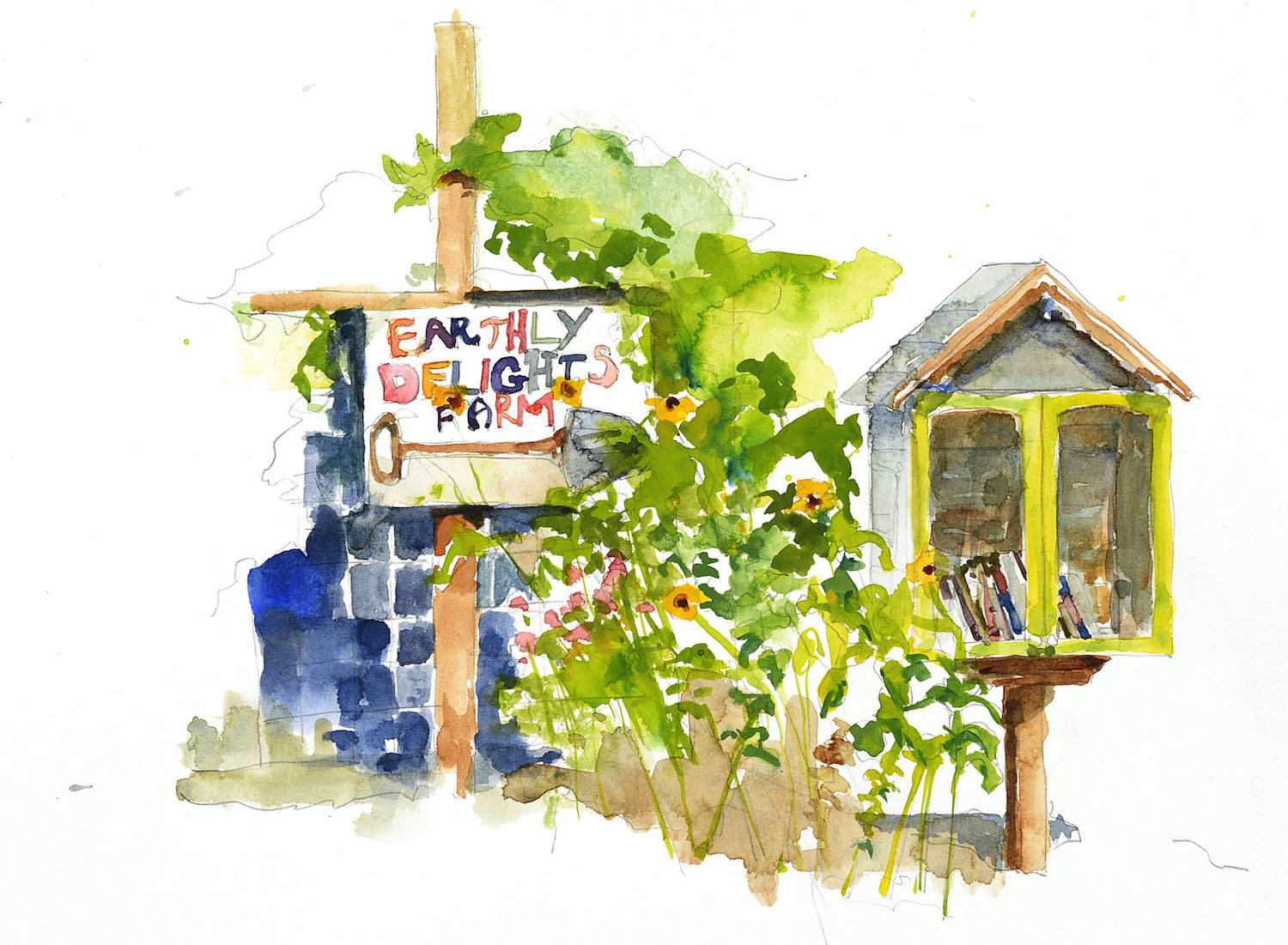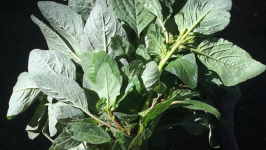Femininity on the Farm: A Gentler Path to Food Production
My farm is unabashedly feminine, with curved beds and rows that tell the story of the human hands who made them. It’s alive with flowers and pollinators and humble in its approach, revering the interconnections between a multitude of species, placing small demands on the soil, valuing the process more than the product. It is joyfully productive, reciprocally nurturing, spiritually satisfying.
It’s taken me over 10 years to be able to say all that. For a long time I’ve doubted the model, which has grown organically and very personally into what it is today. The world of farming is still overwhelmingly masculine, whether it’s the fenceline-to-fenceline GPS-guided monocultures applying the precise amount of NPK, or the production-driven season-extending market farm gospel of quick bed turnover using the latest hand-scale gadgets. even the no-till permaculture preachers have a hearty amount of pontification to sling around, and it’s particularly easy for me to get caught in their crossfire. I suppose in farming, as in most everything else in a patriarchal society, we culturally allow the masculine a platform to confidently insert itself while the feminine is often regulated to the backstage of self-doubt.
But I’ve come to love my quirky model, with its modest balance of CSA vegetables, seed growing and education. I’m proud of myself for staying tuned in to my heart to guide me to a model that works for me, however unconventional it looks from the outside.
Women grow a substantial portion of the world’s food, and though this essay isn’t long enough to delve into properly cited specific statistics, a few key concepts are worth mentioning. The majority of the world’s food is produced on small holdings, not on larger scale agricultural operations. on these smaller farms, women generally play a larger role in the gardening and livestock rearing associated with household or community consumption around the world. small holdings also generally grow crops a household or community wants to eat, using seeds that community has saved and replanted for years with minimal off-farm inputs.
As a farm gets bigger, the people who own or work it become more dependent on purchased inputs like chemical fertilizers, pesticides and hybrid or GMO seeds that cannot successfully or legally be saved and replanted. It moves away from a self-sufficient model to one that requires money to function. Communities become more impoverished in the sense that they lose their ability to feed themselves and instead become increasingly forced to work for a large landowner or foreign corporation growing crops for export on the global market. In this shift, environmental health suffers as habitat for wildlife, pollinators and beneficial insects decreases, waterways become increasingly polluted and soil health declines. one need only to look to the 8,000-square-mile dead zone at the mouth of the Gulf of mexico to see the detrimental effects of industrial agriculture.
Speaking of our neighbors to the south, the Via Campesina movement started in Latin America and their beautiful model of peer-topeer teaching and learning of agroecology has since spread around the world. Peasant farmers are reclaiming their on-the-ground wisdom to farm in harmony with the places they live, developing strong networks and sharing that wisdom among themselves amid the intense pressure of multinational corporations to turn them into a dependent “market.” One of the cornerstones of Via Campesina’s structure is the struggle for gender parity. They require an equal number of men and women to serve as delegates to their international convention and strive to create gender parity in all levels of leadership. Thus, they have developed what they call “peasant feminism.” on their website, La Via Campesina states, “men are not our enemy. our enemies are capitalism, patriarchy and racism, and our peasant feminism is key to fighting these.”
For me, the idea of the feminine wisdom of small-scale agriculture gaining an increasingly equitable seat at the table is exciting and heartening. We all stand to benefit as more voices are welcomed into the crucial conversation of how best to steward land to protect too sexy or whatever. Getting hands in the dirt and doing physically demanding work to produce delicious, healthy food is beyond satisfying— it turns the desire for male approval on its head and subsequently gives us the confidence to speak up more, to make different choices for our lives and to come closer to breaking down the patriarchal system that keeps us all—men and women alike—enslaved.
Here’s to all the incredible women of agriculture. You inspire me daily, and I am honored to be in your dirty company.








